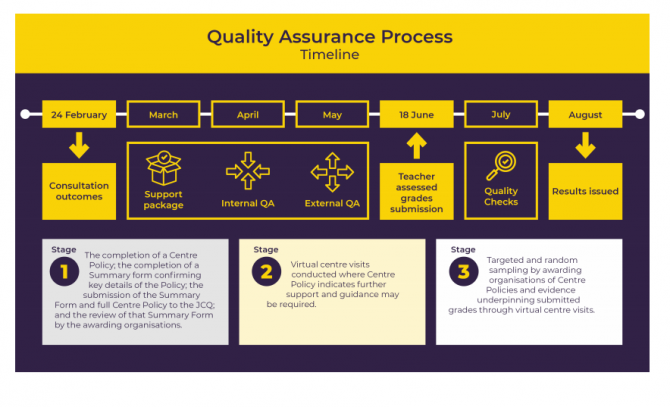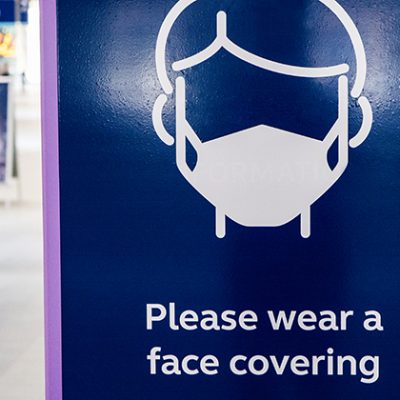In his final interview as FE Commissioner, Richard Atkins speaks candidly about his time in office and why he makes “no apology” for his intervention approach.
Atkins spent 21 years as a college principal before taking on the lead intervention role in 2016, during which time his team visited and publicly reported on dozens of colleges in financial peril, with two becoming the first to be taken through the new insolvency regime.
Q: Your college visits, which have often been swiftly followed by the departure of principals and chairs, have divided the sector’s opinion over your no-nonsense approach. While some have welcomed your intervention, others have been critical of the public focus on leadership failures. How do you respond to that criticism?
A: It is good preparation being a principal for 21 years because you can’t be universally popular all the time, so I had some general preparation for needing to have a thick skin. I always try and put the interest of learners and employers and their parents at the forefront whenever there is very difficult work to do.
In an ideal world there wouldn’t be a need for an intervention regime but I haven’t heard from anyone in the sector that in the cases we have intervened that those cases didn’t need to happen.
If we hadn’t put in the appropriate support and challenge, what would have happened to those learners in those colleges? In my view, the quality of teaching and learning would have deteriorated and the sustainability of the college would have got worse.
For those communities and those learners, I make no apology for what we have done. I and my team make mistakes, nobody is infallible, but if you ask me of the 59 intervention assessments, 95 diagnostic assessments and more than 60 mergers during these four years, do I think we’ve got most of it right, most of the time? The answer from my judgment is yes.
At the end of the day, if an institution is failing and the governance and leadership does not have the capacity and capability to ensure its sustainability and improve its quality, then it isn’t fair on the learners that there isn’t intervention.
I believe that where public taxpayer money is spent, there has to be a high level of scrutiny and accountability.
I think our judgment calls are far more often right than wrong. The ones that attract the most interest are the very serious failures of governance and leadership ̶ we haven’t had that very many of those, but where there have been, I have recommended prompt and direct intervention because that is what employers and parents expect and that is what those are funding the sector expect.
Q: Where do you stand on the issue of “naming and shaming” colleges in difficulty? Some in the sector believe your detailed FE Commissioner reports on individual colleges should be kept confidential instead of being placed in the public domain. Do you agree or disagree?
A: One of the things I introduced when I took on the role was diagnostic assessments. They’re unpublished and private and I think they can be very effective. That is my favoured approach to every intervention.
However, when a college is seriously failing and there has been a serious failure in governance and leadership and/or they become financially insolvent, I do believe that the level of accountability should lead to some form of report. Not just to be published for the sake of feeding the media, but they are also a useful learning point.
There are over 100 FE Commissioner reports now on the DfE website and I have numerous chair and governors saying to me they have looked at a few and find them very helpful. A number of the issues colleges need to address are the same issues and therefore they do provide a really helpful resource. Therefore, do I think there should be a “let’s keep it all private and push it in a corner” approach? No, I do not. But do I think there should be excessive publication of reports, or any attempt whatsoever to name and shame individual people? I do not.
I find that the colleges most concerned about the issues you raise are the ones that have never had any interaction with the FE Commissioner. I often find the college leaders and governors that have gone through our intervention are complimentary.
I don’t produce reports that are salacious or that are meant to entertain.
Ofsted does a great job, and I think it would be extraordinary if we could publish their reports but not FE Commissioner reports ̶ that would be very strange. Why shouldn’t the local community be able to see whether the governance and leadership has the necessary capacity and capability to improve when they’re having difficulties?”
Q: What was your lowest point as commissioner?
A: My lowest moment was at about 10.55am at Hadlow and West Kent and Ashford College on day one when we started to begin to put the jigsaw together that led to their insolvency. That was a very dispiriting moment.
The complex network of governance and leadership arrangements between these two colleges, which were legally independent FE corporations, were incredibly complex and dysfunctional. They had failed to hold any of the right people to account and, as a result, the colleges had failed to keep their eyes close enough to quality across the board, and in particular, had engaged in a range of initiatives and other developments that were inappropriate and led ultimately to their financial collapse. Buying a mining museum, a long way away, and the transfer of assets between the two colleges, were inappropriate.
I was saddened that insolvency needed to happen, but I was incredibly grateful to the interim board and principal, who strengthened the focus on teaching and learning throughout the process.
Q: We have reported on numerous colleges selling off campuses to balance the books in recent years, which has often been controversial with the local community and MPs. Many of the sales have been recommended in FE Commissioner reports. From your perspective, why has this become a common theme for colleges?
A: Being on top of your costs as a college is good practice. It is right and proper that any college knows the costs of running each site and campus and what contribution the site makes to overheads. When a college finds that a particular site is a loss maker and is draining the mothership, then difficult decisions have to be taken.
At the end of the day, are you going to close the small, possibly distant, campus to sustain the large college, or are you going to allow the small one to drain you?
I regret that colleges are faced with that decision, but the reason they are is the core funding will not always enable them to sustain the number of campuses they had two or three years ago.
Good, well-run colleges regularly assess the viability of their sites and all of their provision and take the necessary steps to make sure the college is sustainable and successful for the highest number of learners possible.
We have advised a number of colleges on doing this and each situation is very difficult for the local community and MPs, but I believe they have been well handled by the college in an appropriate way.
The only thing that would make a difference would be a further significant improvement in core funding. It is the contribution level that is key, and to do that you have got to have a good average class size, a good number of learners and apprentices that you can run efficiently. When those are not evident in a site it is very difficult, and good governing bodies and management teams make sure of this year-on-year.
Clearly they shouldn’t make hasty judgments, clearly they should judge these things over a period of years and not rush in and vacate. Sometimes they do have to make very difficult decisions in the face of considerable public noise and upset about what is going on, but I’m not going to sit here and say colleges should keep open unviable sites.
I have not been involved in a case where a college is closing a site in a frivolous or short-sighted way, I have seen it based on real evidence and a real desire to protect the current and future learners as far as possible. I don’t underestimate the impact on students and staff. It is a last resort.
Q: During your time in post FE Week has reported on a number of ESFA investigations into independent training providers (ITPs). Do you wish you could have also intervened in ITPs, which also receive millions of pounds in public funding? Should they be subject to the same scrutiny as colleges?
A: I think to have a role similar to the FE Commissioner for ITPs might well be a good idea. With my college background, it would have been inappropriate for me to do it. A conversation was had with me four years ago about that, but we do not have the skillset or capacity to do that work.
It is not a decision for me, but if the ESFA deemed it helpful to have a team of ITP experts doing this sort of work, I would understand.
Q: What are you planning to do next? Full retirement or other work, perhaps still in the FE sector?
A: Apart from continuing at Exeter University as a board member and being on the government’s Higher Education Advisory Group, I’m hoping to watch a bit more sport and take a bit more exercise.
I don’t see myself as ever being an interim principal. I was jumping on trains and planes three or four days a week in this role. I don’t want to go back to a four- or five-days-a-week job.

 Schools, which only came in-scope for the target in March 2019, performed second-worst with one per cent.
Schools, which only came in-scope for the target in March 2019, performed second-worst with one per cent.
 4. ‘Failure to engage’ in quality checks could be investigated
4. ‘Failure to engage’ in quality checks could be investigated
